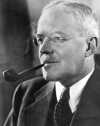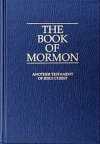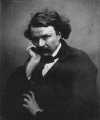.jpg) The old custom of “selling by candle” is still observed in scattered locations throughout England, among them the village of Tatworth in Somerset. Every year on the Tuesday following April 6, six acres of valuable watercress-growing land are leased to the highest bidder. The bidders gather behind locked doors in a room illuminated only by a candle stuck to a board. A pin is inserted into the candle an inch below the flame; as the candle burns, the melting wax eventually releases the pin. The person who got the last bid in before the pin dropped will be able to use the land in the year to come. Discuss
The old custom of “selling by candle” is still observed in scattered locations throughout England, among them the village of Tatworth in Somerset. Every year on the Tuesday following April 6, six acres of valuable watercress-growing land are leased to the highest bidder. The bidders gather behind locked doors in a room illuminated only by a candle stuck to a board. A pin is inserted into the candle an inch below the flame; as the candle burns, the melting wax eventually releases the pin. The person who got the last bid in before the pin dropped will be able to use the land in the year to come. Discuss
Source: The Free Dictionary
 Born into America’s political establishment, Dulles became an extremely influential governmental figure, eventually serving eight years as the US Director of Central Intelligence. He resigned in 1961, after a series of controversial events—most notably the failed Bay of Pigs Invasion of Cuba—aroused criticism of the Central Intelligence Agency. Two years later, he was appointed to the Warren Commission to investigate the assassination of President John F. Kennedy. Who was his famous brother?
Born into America’s political establishment, Dulles became an extremely influential governmental figure, eventually serving eight years as the US Director of Central Intelligence. He resigned in 1961, after a series of controversial events—most notably the failed Bay of Pigs Invasion of Cuba—aroused criticism of the Central Intelligence Agency. Two years later, he was appointed to the Warren Commission to investigate the assassination of President John F. Kennedy. Who was his famous brother?  Wasabi is a member of the cabbage family that grows naturally along stream beds in mountain river valleys in Japan. Its root is used as a strong, mustard-hot spice that produces vapors that burn the sinus cavity rather than the tongue. Wasabi paste is often served with sushi and sashimi, but because true wasabi is so expensive, most American and Japanese sushi bars serve imitation wasabi made of what?
Wasabi is a member of the cabbage family that grows naturally along stream beds in mountain river valleys in Japan. Its root is used as a strong, mustard-hot spice that produces vapors that burn the sinus cavity rather than the tongue. Wasabi paste is often served with sushi and sashimi, but because true wasabi is so expensive, most American and Japanese sushi bars serve imitation wasabi made of what?  April 6, 1830, is the day on which
April 6, 1830, is the day on which  Gaspard-Félix Tournachon, otherwise known as Nadar, was a pioneering French photographer and writer. He invented the photo-essay, but his prose essays and novels brought him greater fame in his day than his photographs. Today, however, he is known for his superb portraits of the Paris intelligentsia, who frequently gathered at his studio, and his aerial images of Paris, which were the first photographs ever taken from the air. What famous literary figure did Nadar photograph on his deathbed?
Gaspard-Félix Tournachon, otherwise known as Nadar, was a pioneering French photographer and writer. He invented the photo-essay, but his prose essays and novels brought him greater fame in his day than his photographs. Today, however, he is known for his superb portraits of the Paris intelligentsia, who frequently gathered at his studio, and his aerial images of Paris, which were the first photographs ever taken from the air. What famous literary figure did Nadar photograph on his deathbed?  Home-distillation of alcohol came to be called “moonshining” in English speaking countries because it was usually conducted at night to avoid arrest for the production of illegal liquor. Home-distillation is, however, a world-wide phenomenon and is not illegal everywhere. In New Zealand, for example, stills are legally sold openly on the market along with instruction manuals. What used to be a common, perhaps unreliable, folk test for determining the presence of lead in moonshine?
Home-distillation of alcohol came to be called “moonshining” in English speaking countries because it was usually conducted at night to avoid arrest for the production of illegal liquor. Home-distillation is, however, a world-wide phenomenon and is not illegal everywhere. In New Zealand, for example, stills are legally sold openly on the market along with instruction manuals. What used to be a common, perhaps unreliable, folk test for determining the presence of lead in moonshine?  The Teutonic Knights attacked the Republic of Novgorod in 1242 as part of their Northern Crusades, which were directed against pagans and Eastern Orthodox Christians rather than Muslims in the Holy Land. Waged on the frozen surface of Lake Peipus, which now sits on the border of Estonia and Russia, the Battle of the Ice proved disastrous for the knights. Though some historians consider the battle a major turning point in the Northern Crusades, others believe it was only a minor skirmish. Why?
The Teutonic Knights attacked the Republic of Novgorod in 1242 as part of their Northern Crusades, which were directed against pagans and Eastern Orthodox Christians rather than Muslims in the Holy Land. Waged on the frozen surface of Lake Peipus, which now sits on the border of Estonia and Russia, the Battle of the Ice proved disastrous for the knights. Though some historians consider the battle a major turning point in the Northern Crusades, others believe it was only a minor skirmish. Why?